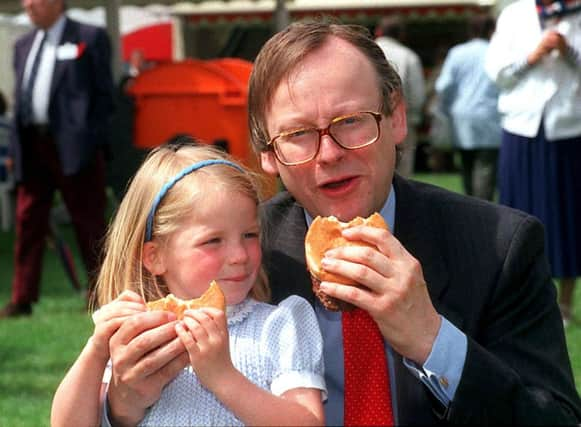Brexit narrows our focus away from events elsewhere


We have come to see it as the only show in town, so far as agriculture is concerned. That is understandable, since the industry’s future depends on getting the right foundations in place. These are about a support structure that will maintain farm incomes and trade policies that will allow ‘business as usual’ and new opportunities for growth.
One trend now firmly in place in both the EU-27 and the UK is that small is being seen as more beautiful than large in farming. The Defra Secretary, Michael Gove, has already said that he wants to cap whatever new farm supports are put in place and ensure they are focussed on farmers rather than landowners. That is also the direction of travel in the EU. The European Commission president, Jean Claude Juncker, has said CAP direct payments will have a limit per farm of 60,000 euro or about £52,500. His aim is to help small farm holdings, rather than what he describes as ‘agricultural factories’.
Advertisement
Advertisement
For both the UK and EU this is a worthy aim, but it does not come without challenges. If it is simply about paying less to large landowners and the same to others it could have a negative economic impact. A fundamental problem is the assumption that large farming has to be curtailed. In reality agriculture, whether here or in the EU-27 has to be globally competitive. Large farms are generally more efficient and capable of producing commodities at world prices.
Efforts to use fiscal policies to discriminate against these businesses run counter to the trend of farms getting ever bigger and more efficient. However this is an idea that is now unstoppable, since the message that small is beautiful has been sold to the tax-paying public. It is ironic that the UK, with a Conservative government, led the way with this approach. It would have been in place across the EU many years ago, had it now been for forthright opposition from the same party to what was then known as ‘degressivity’. That was central to the MacSharry CAP reforms in the late 1980s, but was sunk by a well managed campaign against it by the then agriculture minister, John Gummer.
Inside or outside the EU there are big issues to tackle. One that will not be going away is genetically modified (GM) food. It is difficult to envisage the EU altering its largely negative approach to this science, but the UK will be able to make its own choices after Brexit. This will be all the more so if there is no formal or informal customs union arrangement with the EU-27. The government has said it wants to see a technically efficient and progressive farming industry, but whether that goes as far as allowing GM crops or even expanded trials remains to be seen. Outside a customs union it will have to come up with its own licensing and product approval arrangements for new crops.
One of the objections to GM crops has always been the public reaction, but an interesting survey of younger people has shown that only 20 per cent have concerns about GM technology in food production. The survey was carried out for biotechnology companies by an independent polling company. They are suggesting its findings could allow the government to strike out with a more science-driven policy for agriculture, with GM used to deliver disease resistance. If this were to happen it would certainly put clear blue water between UK and EU-27 agriculture.
Advertisement
Advertisement
A big concern for farmers is that post-Brexit trade deals could lead to a surge in cheap imports of meat from South America and some Asian countries. Interestingly the EU could hold the answer to this, in that it is considering a ban on imports from third countries that use a range of antimicrobials in livestock production. This is part of the EU’s strategy to reduce their use and the threat of human antibiotic resistance. This has prompted warnings that the EU will be breaking World Trade Organisation rules if it implements this policy. As an idea it has a long way to run. It is one the farming lobby in the UK needs to make sure is not only on the government’s radar, but in the mind of consumers when they are being wooed with cheap post-Brexit imports to drive down food prices.